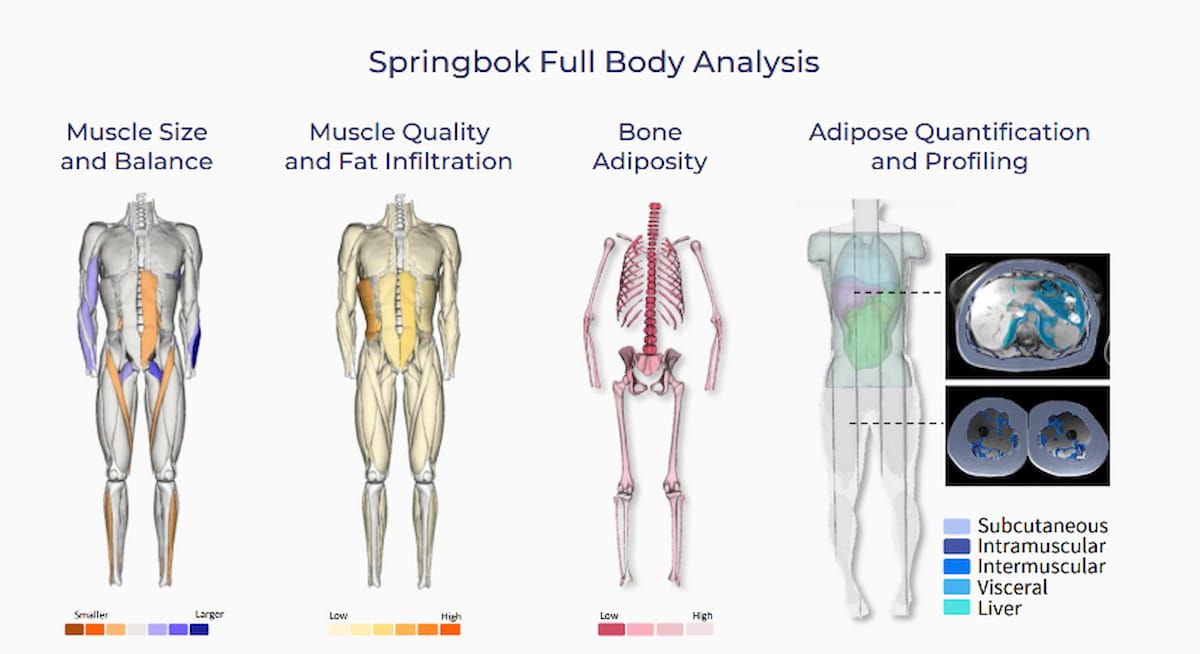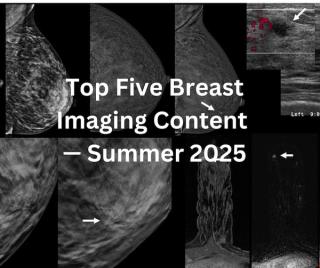
MRI
Latest News


GE HealthCare to Unveil Updated Intelligent Radiation Therapy Workflow Software at ASTRO Conference

Can a New MRI-Based Risk Stratification Model Bolster Survival Prediction with Pancreatic Ductal Adenocarcinoma?
Latest Videos

CME Content
More News

Offering prospective SNR calculation derived from prescribed slices, the SNR Calculator reportedly facilitates a higher degree of accuracy with quantitative SNR values beyond that of calculators from device manufacturers.

Catch up on the top radiology content of the past week.
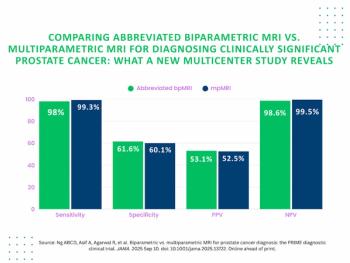
Abbreviated biparametric MRI demonstrated nearly equivalent detection rates for clinically significant and clinically insignificant prostate cancer as multiparametric MRI, according to research involving 22 centers in 12 countries.

The AI-powered Tempus Pixel software update provides T1 and T2 inline maps to augment cardiac MRI assessment.
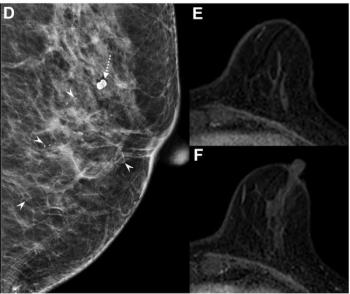
For HER2-positive breast cancer patients with radiologic complete response on breast MRI after neoadjuvant chemotherapy (NAC), the absence of calcifications was associated with over a 13 percent higher positive predictive value (PPV) for pathologic complete response (pCR).

Circumferential aneurysm wall enhancement on MRI was associated with a 3.8-fold higher risk of intracranial aneurysm instability within a four-year period, according to a study involving over 1,350 patients.
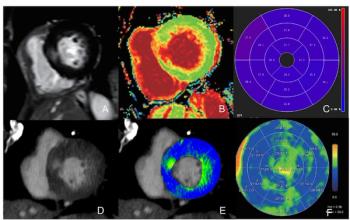
For myocardial extracellular volume quantification, single-phase and dual-phase photon-counting CT provided over 20 percent higher correlation with cardiac MRI in contrast to dual-phase energy-integrating detector CT, according to new research findings.
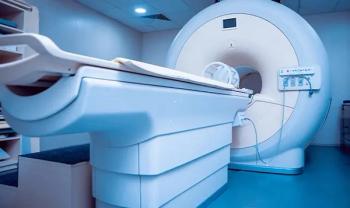
In a 10-study meta-analysis examining the use of whole-body MRI for asymptomatic individuals, researchers noted a pooled cancer detection rate of 1.57 percent.
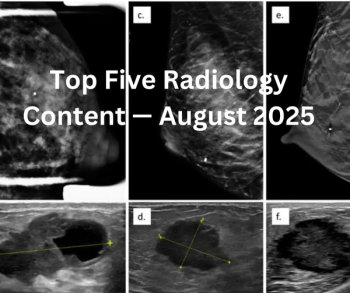
Catch up on the most-well viewed radiology content in August 2025.
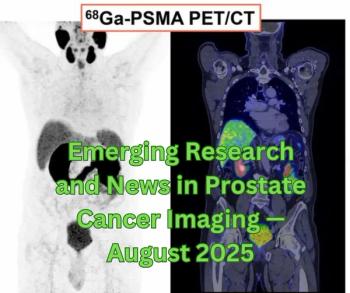
Catch up on the most-well viewed prostate imaging content in August 2025.

Catch up on the top AI-related news and research in radiology over the past month.

Catch up on the top radiology content of the past week.
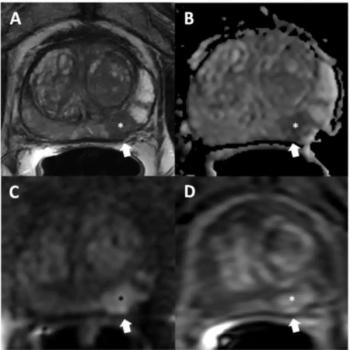
In a new review of MRI-based scoring systems for T-staging of prostate cancer, researchers discuss key literature findings and principles in evaluating the extent of prostate cancer (PCa) lesions, and whether a focus on specificity could enhance the staging of PCa.

Catch up on the top radiology content of the past week.

Incorporating technology from Siemens Healthineers’ Magnetom Skyra Fit system, the Invision 3T Recharge Operating Suite offers AI-powrred protocols and automated image reconstruction capabilities.

Catch up on the top radiology content of the past week.
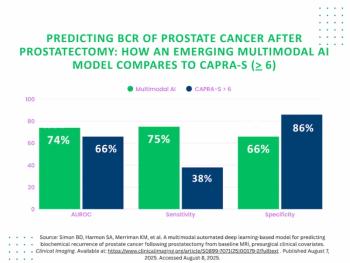
A deep learning multimodal model that incorporates MRI features offered nearly double the sensitivity for predicting post-prostatectomy biochemical recurrence of prostate cancer in comparison to the traditional CAPRA-S scoring system.
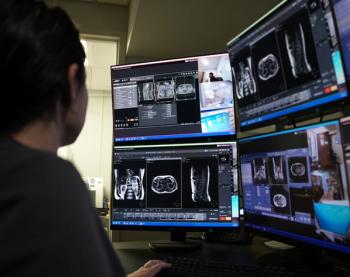
In addition to facilitating centralized scanning for a variety of imaging, the TechLive system may help ease the strain of technologist shortages and broaden access to advanced imaging exams.
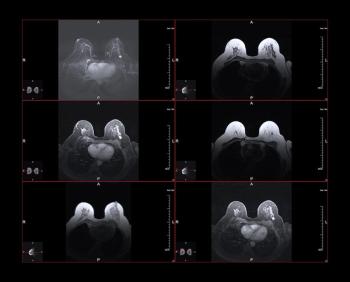
Lower proportions of extremely dense breasts and high BRCAT lifetime risk among Black women in comparison to White women may have resulted in a lower likelihood of eligibility for supplemental screening insurance coverage in Pennsylvania, according to new research.
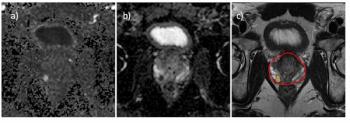
Offering an 87 percent sensitivity for clinically significant prostate cancer (csPCa), the deep learning model demonstrated an 86 percent AUC for predicting > PI-RADS 3 lesions on prostate MRI.
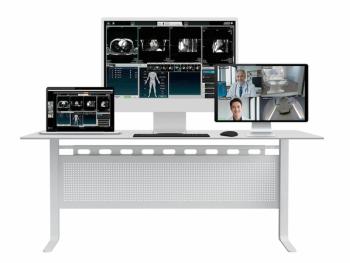
The multimodality remote scanning modality uOmniscan and the recently FDA-cleared 3T uMR Ultra MRI system were unveiled at the Association for Medical Imaging Management (AHRA) conference in Las Vegas.

Catch up on the top radiology content of the past week.

In the last of a three-part podcast episode, Stamatia Destounis, MD, Emily Conant, MD and Habib Rahbar, MD, share additional insights on practical considerations and potential challenges in integrating abbreviated breast MRI into clinical practice, and offer their thoughts on future research directions.

In the third of a three-part podcast episode, Emanuel Kanal, M.D. and Tobias Gilk, MRSO, MRSE, discuss strategies for maintaining the integrity of time-out procedures and communication with remote MRI scanning.

An analysis of over 749,000 Medicare beneficiaries diagnosed with prostate cancer over a five-year period found that Black men were 13 percent less likely to receive PET imaging and 16 percent less likely to receive MRI in comparison to White men.


